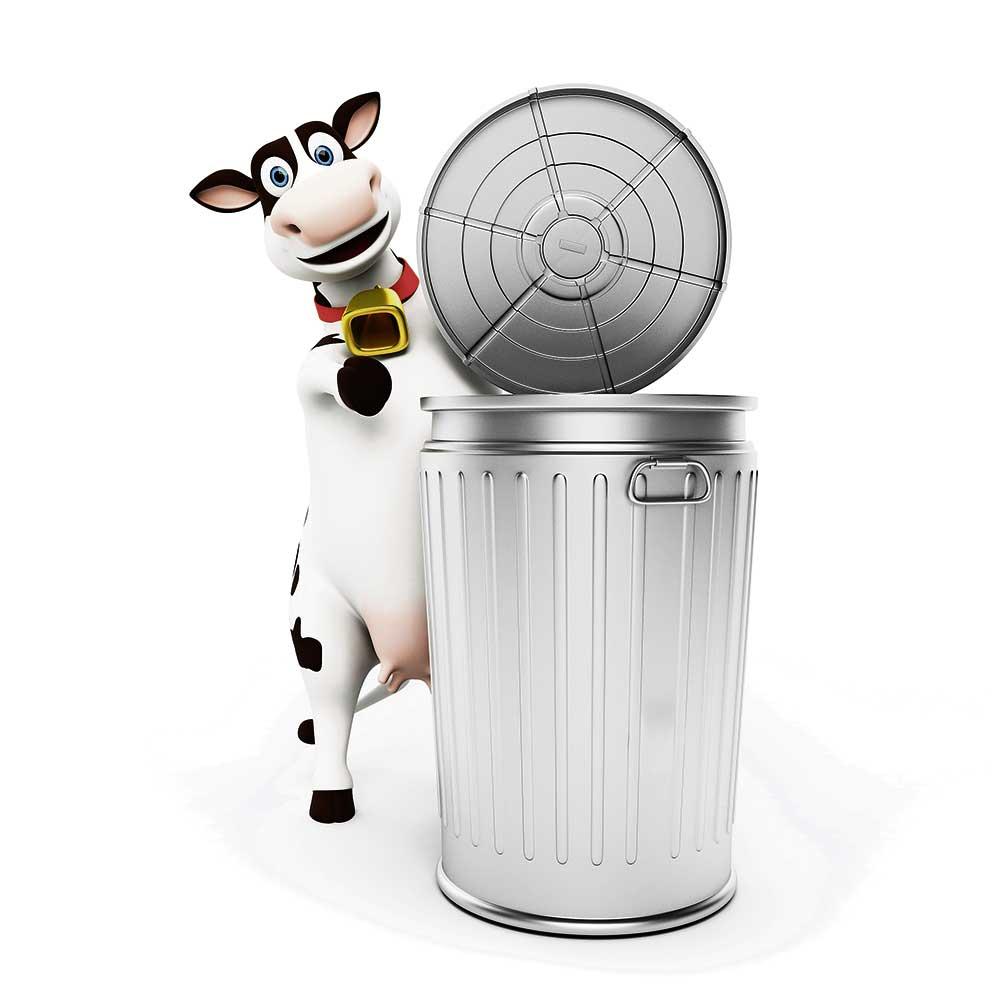Deadly debris on cow pastures
25.07.2019 Gstaad LivingForeign bodies in cows’ forestomachs are common, according to Christian Gerspach, head of bovine medicine at the Animal Hospital in Zurich. This is because, in contrast to horses, sheep or goats, cows aren’t selective when grazing as they swallow entire tufts of grass. Particularly when cows ingest mown food quickly, foreign objects hidden in the grass can enter their forestomach (one of their four stomachs). In the vast majority of cases, the debris are pieces of wire, nails or other metal objects, says Gerspach. These can pierce the stomach wall and cause inflammation.
Magnets to the rescue
X-rays and ultrasound examinations are sometimes used to determine the exact location of a foreign body inside a cow. On occasions, these items can find their way into the spleen, the liver or even the heart, explains Gerspach. If the infection is local, the animal can usually be saved. Otherwise it has to be put down.
Before a cow is referred to the animal hospital due to ingesting a suspected foreign body, the farm veterinarian passes a magnet through the cow’s mouth to try to capture the foreign metal body. If it sticks to the magnet, this means the item is in the reticulum and won’t usually affect the cow’s digestion or health. Often, cows can be helped using this simple method, according to Gerspach. On farms where foreign bodies are commonplace, farmers give magnets to cows as a precautionary measure.
Cans kill
Unfortunately, magnets don’t help when it comes to aluminium due to cans thrown away on pastures and meadows. An entire aluminium can would not be quite so dangerous for a cow, mainly because it could barely swallow a whole can. However, it’s the splinters that cause the danger and these are created when a mower cuts through the can or the sharp blades of farming machines shred the can. Farmers usually can’t see these cans, especially in tall grass.
Aluminium cans are one of the most dangerous objects when casually discarded. This is because their splinters are sharp and small. Also, an aluminium isn’t magnetic so can’t be retrieved using a magnet. Splinters from plastics like PET plastic bottles or fireworks are other possible causes of internal injuries. Parts of plastic bags ingested by the animals can clog the feeding tubes around the forestomach.
Not every cow suffering from ingesting a foreign body will make it to the animal hospital, because investigations and operations are expensive for farmers. Although littering isn’t always a proven cause of cow illnesses and even deaths, veterinarians support the campaign for litter-free meadows on farms.
Based on AvS
Translated by Justine Hewson




